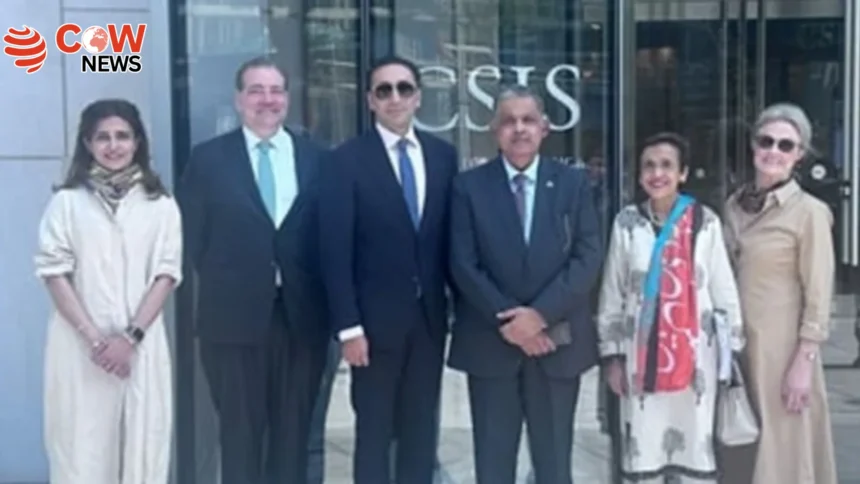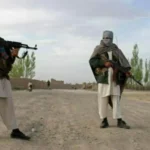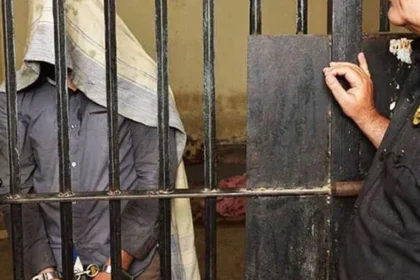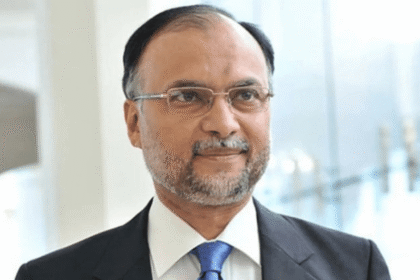Chairman of the Pakistan Peoples Party (PPP) and former Foreign Minister Bilawal Bhutto Zardari has termed the suspension of the Indus Waters Treaty by India a “grave violation of international law” and warned that undermining longstanding agreements could have dangerous repercussions for regional peace.
Bilawal made these remarks during a high-profile visit to Washington, D.C., where he led a senior Pakistani delegation in a series of meetings with U.S. lawmakers, think tank representatives, and members of the Pakistani-American diaspora. The visit comes at a critical time for South Asia, with tensions simmering between nuclear-armed neighbors Pakistan and India.
Addressing members of the U.S. Congress and foreign policy experts, Bilawal emphasized the importance of dialogue and diplomacy over conflict, stating, “Peace in South Asia cannot be achieved through war—it must come through sustained and sincere negotiations. The suspension of the Indus Waters Treaty undermines not only bilateral trust but also international norms and multilateral frameworks.”
One of the key highlights of the visit was Bilawal’s meeting with the Pakistan Caucus of the U.S. Congress at the Cannon House Office Building. Hosted by Congressman Tom Suozzi (D-NY), the session brought together several bipartisan lawmakers, including Rep. Ilhan Omar (D-MN) and Rep. Jack Bergman (R-MI). The discussions covered a wide array of regional issues including counterterrorism cooperation, trade relations, and the trajectory of Pakistan-India ties.
According to insiders, Bilawal floated the idea of establishing a Joint Pakistan-India Counterterrorism Forum, an initiative aimed at reducing hostility and fostering structured intelligence-sharing mechanisms. “We believe that regional security must be pursued collaboratively. There is no alternative to coordinated counterterrorism efforts,” he said.
A major point of concern throughout Bilawal’s engagements was India’s reported decision to unilaterally suspend certain obligations under the Indus Waters Treaty (IWT)—a landmark agreement brokered by the World Bank in 1960 that governs the sharing of water resources between India and Pakistan.
“The IWT has withstood wars and crises. Tampering with it now would set a dangerous precedent,” Bilawal warned, adding that such a move would not only violate international commitments but could trigger a water crisis with significant humanitarian consequences.
He urged the U.S. and international community to step in and reaffirm the sanctity of the treaty. “We need global voices to stand firm against unilateralism,” he added.
Bilawal also participated in a closed-door roundtable discussion at the Center for Strategic and International Studies (CSIS), a leading Washington-based think tank. The conversation revolved around South Asia’s evolving geopolitical landscape, with a particular focus on U.S.-Pakistan relations and the Afghan peace process.
Bilawal reiterated that Pakistan remains committed to regional peace and sees diplomacy as the only sustainable solution to geopolitical challenges. “Pakistan believes in talking through problems—not shooting through them. The gun cannot solve what the table can,” he remarked.
Speaking at an event organized by Americans for Tax Reform, Bilawal highlighted the economic dimension of conflict resolution. “Opening up trade avenues and resolving disputes through diplomacy won’t just bring peace—it will also save American taxpayers billions in security and aid costs,” he said, emphasizing the economic incentive of peaceful coexistence in South Asia.
Bilawal also expressed appreciation for U.S. efforts to de-escalate tensions in the region, particularly acknowledging President Donald Trump’s role in facilitating recent ceasefire talks between Islamabad and New Delhi. “We recognize and thank President Trump for his efforts to keep the door to dialogue open,” he said.
During his Washington visit, Bilawal held a special engagement with influential members of the Pakistani-American community. The session included prominent figures such as Democratic activist Ejaz Alvi, who lauded Bilawal for raising Pakistan’s voice on key international platforms and pushing for stronger ties with the diaspora.
Bilawal also gave interviews to leading U.S. news networks, in which he discussed Pakistan’s vision for peace in South Asia, its stance on the Afghanistan issue, and the ongoing water disputes with India. His media engagements were aimed at countering growing misinformation about Pakistan’s foreign policy and positioning the country as a rational actor in a volatile region.
In his concluding remarks at various forums, Bilawal stressed the need for renewed diplomatic energy from global powers. “The world must not look away. South Asia needs diplomacy, investment, and international mediation—not more arms and animosity,” he said.
He called upon international organizations including the United Nations Security Council (UNSC) to play a more proactive role in resolving long-standing issues such as Kashmir and the Indus Waters dispute. “The UNSC must not wait for a catastrophe to intervene. Peace requires anticipation, not just reaction,” he warned.
Bilawal Bhutto Zardari’s visit to Washington reflects an assertive diplomatic push by Pakistan to highlight its concerns over India’s alleged violations of the Indus Waters Treaty and to promote a broader peace agenda in South Asia. By combining bilateral diplomacy with think tank outreach and media engagement, Bilawal is attempting to reshape the narrative around Pakistan’s regional posture—from one of confrontation to cooperation.
Whether this effort results in tangible policy shifts remains uncertain, but one thing is clear: at a time when geopolitical instability threatens to spiral, voices advocating diplomacy are more vital than ever.







